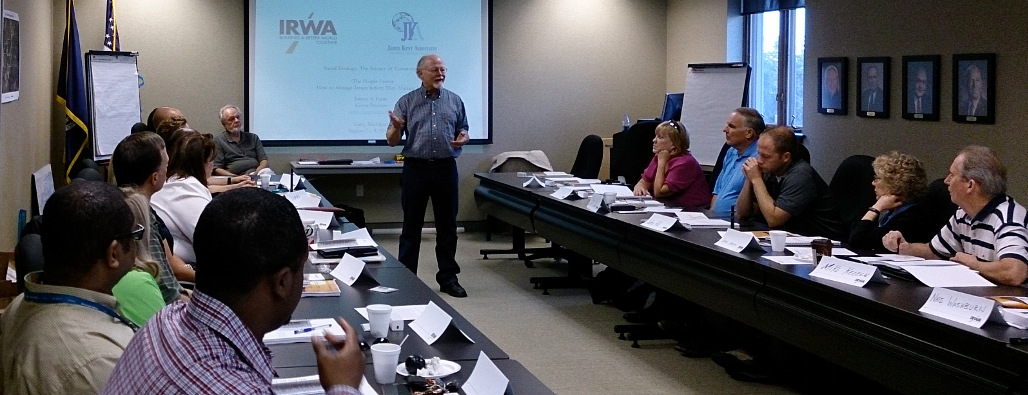
with energy and right-of-way professionals in Caro, Michigan
We believe the most effective way for an institution to work with clients or constituents is through direct contact between decision makers and those impacted by those decisions. Thus in addition to implementing our principles of community engagement on behalf of a client, we also support our clients in building a culture of healthy community engagement within their organization. CSEPP works with interested organizations to design a training curriculum built from a menu of essential modules that addresses your specific communities, your projects, and the state of your relationship with the community. Most of our training programs span a few days to a week and take place in a location relevant to the work clients are undertaking. The timing and location of each training is designed collaboratively with clients.

From the classroom to “the field”
With roots in applied anthropology, most of our training programs incorporate blocks of time for participants to get out pf the classroom and devote time to talking with community members informally–out in “the field”. While hesitancy to leave one’s familiar work environment to talk with folks outside of a formal meeting or input session is understandable, CSEPP’s experienced trainers guide all participants during the fieldwork process by sharing easy-to-use observation and conversation guides. Our experience training hundreds of clients over several decades confirms that even a few hours of time talking with community members yields insights into the importance of the central principles of our approach and helps galvanize support internally for a shift toward more proactive community engagement.
Building organizational empowerment
We believe that building a culture of responsive and proactive community engagement is empowering to both the community members impacted by a project and the implementing organization. The following sections highlight the benefits of CSEPP’s training to our clients:
Core skills developed:
- Understanding how communities currently function at two levels, informal and formal
- Learning how to predict, identify and use trends to strengthen the organization’s service to the communities they impact
- Distinguishing between positions, opinions, and ideology of vested interests from issues of the people that can be acted upon by the organization
- Aligning the formal community organization with the informal networks of communication, survival and cultural caretaking present in all communities
[/half]
[half]
Client organizations learn to:
- Develop their projects to align with the various informal networks in the affected communities
- Advance culture-based strategies that optimize project ownership within the communities
- Avoid project disruption by building goodwill through visible resolution to issues of citizen concern
- Develop authentic, face-to-face relationships that result in long-term partnerships and resilient communities
[/half]
Learn more about CSEPP’s training programs
[third]
Browse a sample training program outline
We work with each client to develop a training program to meet your specific needs. Our sample program outline was drawn from a 2014 training session with members of the International Right-of-way Association.
Read More[/third]
[third]
Review our training schedule and past programs
CSEPP holds training programs often and have had many satisfied clients. If an upcoming training is nearby, contact us and ask about making a visit to see how our training can assist your work.
Read More[/third]
[third]
Explore our essential training modules
We build our training programs with clients by assembling relevant training modules that we’ve developed over decades of experience training staff in corporations, organizations, and government agencies.
Read More[/third]
